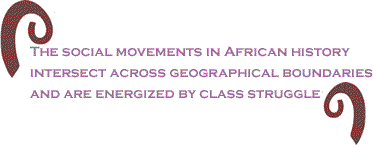
|
|||||||||||||||||||||
 |
|||||||||||||||||||||
 |
||||||||||
|
||||||||||
|
The current issue is always free to everyone If
you need the access available to a |
||||||||||
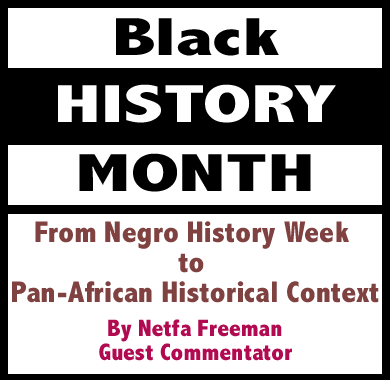 |
||||||||||
 |
||||||||||
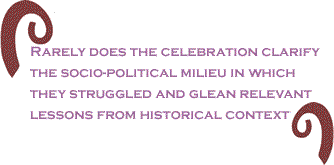 |
||||||||||
The need to once and for all embrace a reasonable and comprehensive interpretation of African history that inspires and uplifts Black people is evident when examining how Black History Month is celebrated in US culture. Like most other historic reflections, Black History Month is sanitized with stagnate and idealistic interpretations, aimed at removing the vital elements of historical struggle and revelation. Today it is customary during the month of February for media to make superficial sound bites about "African-American" pioneers in technology, sports, scholarship and anti-slavery activism.
However, a proper examination of Black History Month must also take into account the laws of change and historical development to which everything is subject. In 1926, Dr. Carter Godwin Woodson, an African historian, writer, and educator, established Negro History Week to honor the contributions of African people in North America. For "historical clarity" African is being used by this author to refer to all people of African descent, whether they are born in North or South America, the Caribbean, Europe or any other part of the world. Born in 1875 to former slaves in New Canton, Virginia, the extent and scope to which the Harvard educated Dr. Woodson identified did not extend beyond North America. Woodson even chose the month of February for the observance of Negro History Week because the birthdays of abolitionist Frederick Douglass and US President Abraham Lincoln fall in this month. Regardless, Dr. Woodson contributed profoundly to our understanding that a better knowledge of history is critical for African people, at least in North America, to achieve greater pride, self-determination and collective progress. As go the laws of change, Negro History Week itself transformed. About fifty years later, near the close of the Black Power era (early 1970s), the celebration was renamed Black History Week and even later expanded to Black History Month in 1976. These changes reflected a progression in how African people throughout the world had come to identify. Dr. Woodson insisted that history was not the mere gathering of facts or a chronology of events, but that the object of historical study is to arrive at a reasonable interpretation of the social conditions of the period being studied. Applying this objective to the social conditions in which Dr. Woodson lived reveals coexistence with the 1914 Garvey movement in the formation of the Universal Negro Improvement Association (UNIA) and the Black Star Line. The UNIA's movement, led by the Honorable Marcus Garvey, broadened the ideological scope for African people beyond the confines of birth-country and into the extensions of the Diaspora. Marcus Garvey offered a more inclusive philosophy of how African people could identify, reflect and engage. Before the UNIA, the Pan-African movement found an earlier expression in 1900 at the first Pan-African Conference convened in London by Sylvester Williams. Since that first conference there have been seven subsequent Pan-African Congresses, the seventh taking place in Uganda in 1994. Consistent with the teachings of Dr. Woodson, the inspiration that comes from biography and history must necessarily include the context that connects the "American negro" to a broader African people scattered and struggling in 135 countries worldwide. Since the founding of Negro History Week, a host of positive and negative personalities, events and historical developments have transpired, affording African history instructive and dynamic lessons for humanity. More has also been learned about philosophies and methods of history. Nevertheless, the most instructive lessons are largely neglected. Black History Month must do more than emphasize the inspiring achievements of great individuals. It must also help in refining a historical philosophy and method of study that helps us understand the prevailing conditions of our time. Historical study should explain such phenomena as how young Africans from the Congo to Haiti, from urban neighborhoods in the USA to other parts of the world are armed and wreaking havoc on their own communities. It should be able to explain how a people from a continent that has spawned some of the greatest contributions to world civilization are, today, persistently plagued by apathy, disease, poverty and political disempowerment in communities around the world. Neglecting the history that connects Black experiences and struggles beyond the confines of a particular country renders Black History Month deficient and leaves room for the notion of African inferiority.
Surely it is a positive thing for any African community to achieve greater organizational consolidation and radical change from adversity. Instead, the memo recommends:
This history demonstrates that African people need to develop institutions for coordinating our political activities internationally; to generate faith and unconditional support for these activities; and to take control of information about our history and current geo-political events. It’s common knowledge that the continent of Africa is the most naturally rich continent on earth. It is also painfully clear that African people everywhere are among the poorest and most oppressed. A proper reflection of Black history can combat this by educating people about the forces in conflict with African progress and providing lessons from past successes and failures. To combat inferiority complexes, African people need to know that profound forms of organized resistance have been and are being waged against slavery, colonialism, neo-colonialism and imperialism.
It is inspiring to know that the Civil Rights and Black Power Movements in the US were taking place simultaneously with similar struggles for independence and self-determination in Africa and the Diaspora. Leaders like Malcolm X, Kwame Nkrumah, Shirley Dubois, Sekou Ture and others were meeting with one another, making plans and concretizing the Pan-African agenda. Knowledge of such things has proven to resolve notions of inferiority and to imbue African people with a greater sense of social obligation. The social movements in African history intersect across geographical boundaries and are energized by class struggle. The context in which we consider ourselves must be commensurate with the exigencies before us, which exist within an increasingly globalized yet more polarized world. Just as Negro History Week has evolved into Black or African-American History Month, to continue having value, it must evolve into a Pan-African Historical Context. Netfa Freeman is director of the Social Action & Leadership School for Activists (SALSA), a program of the Washington DC based Institute for Policy Studies (IPS). Click here to contact Mr. Freeman. |
||||||||||
| February 7,
2008 Issue 263 |
|
| Executive Editor: Bill Fletcher, Jr. |
| Publisher: Peter Gamble |
| Printer Friendly Version in resizeable plain text format format |
 |
 |
 |
 |
| |
| |





















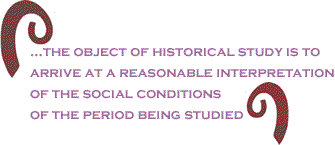 While
schools highlight leaders like Dr. Martin Luther King Jr., Harriet
Tubman, Fredrick Douglas and several others, rarely is the celebration
used to thoroughly reflect on the ethics, political vision,
and philosophical insights of these leaders. Rarely does the
celebration clarify the socio-political milieu in which they
struggled and glean relevant lessons from historical context.
Further, connections to Africa are generally severed at the
Middle Passage, instead of recognizing the subsequent interconnections
between the economic circumstances, cultural expressions, and
political movements of African people. This is expected since
it isn't difficult to see how knowledge of these connections
conflict with a corporate capitalist culture that has effectively
commercialized Black History Month as a means to advertise commodities.
Nationwide Insurance airs a touching radio commercial that doesn't
even offer history, but simply appeals to insure “personal
Black history” by buying life insurance.
While
schools highlight leaders like Dr. Martin Luther King Jr., Harriet
Tubman, Fredrick Douglas and several others, rarely is the celebration
used to thoroughly reflect on the ethics, political vision,
and philosophical insights of these leaders. Rarely does the
celebration clarify the socio-political milieu in which they
struggled and glean relevant lessons from historical context.
Further, connections to Africa are generally severed at the
Middle Passage, instead of recognizing the subsequent interconnections
between the economic circumstances, cultural expressions, and
political movements of African people. This is expected since
it isn't difficult to see how knowledge of these connections
conflict with a corporate capitalist culture that has effectively
commercialized Black History Month as a means to advertise commodities.
Nationwide Insurance airs a touching radio commercial that doesn't
even offer history, but simply appeals to insure “personal
Black history” by buying life insurance.

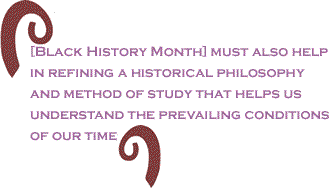 Historical
context presupposes more than outstanding achievements and personalities
or else is it sterilized into something incapable of explaining
present global challenges and illuminating future direction.
For example, it is clearly significant that in March 1978, the
US National Security Council issued secret memorandum 46 in
response to directives from the president that "a comprehensive
review be made of current developments in Black Africa from
the point of view of their possible impacts on the black movement
in the United States". This memo demonstrates the attitude
and multiplicity of political and economic interests influencing
US policy toward Africa and African people:
Historical
context presupposes more than outstanding achievements and personalities
or else is it sterilized into something incapable of explaining
present global challenges and illuminating future direction.
For example, it is clearly significant that in March 1978, the
US National Security Council issued secret memorandum 46 in
response to directives from the president that "a comprehensive
review be made of current developments in Black Africa from
the point of view of their possible impacts on the black movement
in the United States". This memo demonstrates the attitude
and multiplicity of political and economic interests influencing
US policy toward Africa and African people: